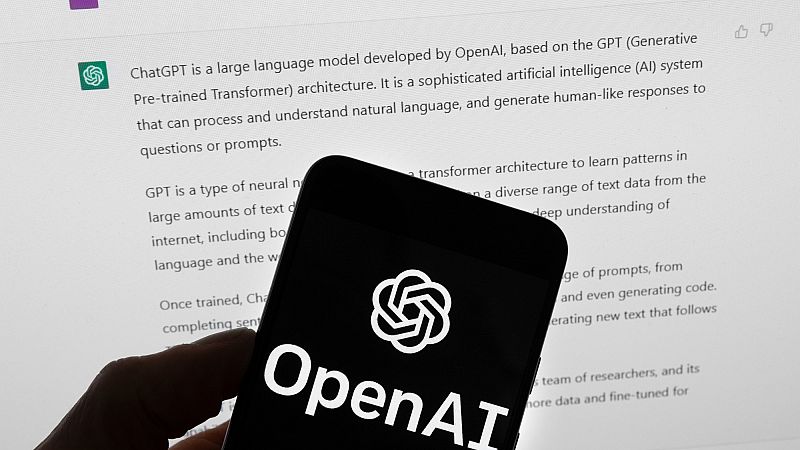
OpenAI must pay a licensing fee to use copyrighted song lyrics in its artificial intelligence (AI) models, including ChatGPT, a German court ruled in a landmark case on Tuesday.
Presiding judge Elke Schwager ruled in favour of the Society for musical performing and mechanical reproduction rights (GEMA), Germany’s largest music rights collecting organisation, which lodged a complaint last year against the US-based OpenAI over its use of copyrighted lyrics.
The judge ordered OpenAI to compensate GEMA for all damages, including unpaid royalties and legal fees, plus interest. OpenAI could be forced to pay the group hundreds of thousands of euros if the ruling holds.
An OpenAI spokesperson told Euronews Next in an email that the company disagreed with the ruling and is considering its next steps.
“The decision is for a limited set of lyrics and does not impact the millions of people, businesses, and developers in Germany that use our technology everyday,” the spokesperson said.
“We respect the rights of creators and content owners and are having productive conversations with many organisations around the world, so that they can also benefit from the opportunities of this technology,” the spokesperson added.
OpenAI can still appeal the decision.
Memorising and reproducing copyrighted material
The case concerns the lyrics of nine well-known German songwriters represented by GEMA, including Kristina Bach and Rolf Zuckowski.
GEMA alleges that OpenAI’s ChatGPT chatbot memorised these lyrics in its datasets and reproduced “large parts” of these songs “verbatim” when prompted.
OpenAI argued that its language models do not store or copy specific training data, but rather learn patterns and generate new outputs based on those patterns.
The company put the responsibility on individual chatbot users, saying the lyrical outputs could not be generated without user input – an argument the court rejected.
“The defendants, not the users, are responsible for this,” the court said in a statement. “The language models operated by the defendants significantly influenced the outputs; the specific content of the outputs is generated by the language models”.
The case is the first of its scale in Europe. It could set a precedent for how generative AI systems are regulated in the European Union – especially when it comes to art.
“For the first time, today’s ruling clarifies key legal questions concerning the way new technology interacts with European copyright law,” GEMA’s General Counsel Kai Welp said in a statement shared with Euronews Next.
“The verdict represents a milestone on the way to obtaining fair remuneration for authors and creators throughout Europe,” Welp added.
GEMA is one of the largest societies for musical creators in the world, representing more than 95,000 composers, songwriters, and publishers in Germany, and over two million copyright owners globally.
The group has offered an AI licensing model since 2024, designed to let technology companies train on its catalogue legally while ensuring artists are paid fairly.
GEMA has filed a parallel lawsuit against US-based AI music generator SunoAI, also accusing the company of training on its catalogue. That case is expected to be heard early next year.







